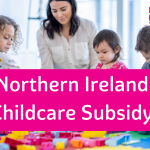Coronavirus: What does the Chancellor’s summer statement mean for families and employers?
On 8 July, Chancellor Rishi Sunak delivered his summer statement, setting out plans to support economic recovery as we progress out of the COVID19 pandemic. In recent months, the impact of Coronavirus has been felt by all of us as lockdown restrictions have resulted in job losses, households experiencing a reduction in income and businesses experiencing a decline in trade. The Chancellor recognised that, despite the Government’s interventions to support businesses and individuals, the UK is still facing profound challenges and significant job losses. Details of some of the key announcements from the summer statement, intended to mitigate these, are set out below.
Note that not all measures apply in all parts of the UK.
Job Retention Bonus
The Chancellor confirmed that the furlough scheme will come to an end in October, as previously indicated. In order to incentivise employers to retain staff once it does, the Chancellor has announced a UK wide ‘Job Retention Bonus’ which will entitle employers to a £1,000 bonus for each employee who:
- Is brought back from furlough,
- Remains continuously employed until at least the end of January 2021 and
- Earns at least £520 per month on average from October through to January.
Payments will be made from February 2021. Further detail about the scheme will be announced by the end of July.
Encouraging businesses to employ young workers
Young people between the ages of 16 and 24 have been particularly hard hit by job losses. The Chancellor announced a “Kickstart Scheme” in Great Britain to encourage employers to create new jobs for young people who are at risk of long-term unemployment. This will include funding high quality six month work placements at a rate of 100% of the relevant National Minimum Wage for 25 hours per week, plus the associated employer National Insurance contributions and employer minimum automatic enrolment contributions.
The Government will also pay employers in England £1,000 to take on trainees and £2,000 to encourage them to hire apprentices.
Temporary stamp duty cut
From 8 July 2020, until 31 March 2021, there will be a temporary holiday on stamp duty liable on the first £500,000 of all property sales in England and Northern Ireland. Stamp duty is an additional levy liable on land or property bought for £125,000 or more. Note, this measure does not currently apply in Scotland, where home buyers pay Land and Buildings Transaction Tax, or in Wales where buyers pay Land Transaction Tax.
It is important to note that those buying homes for more than £500,000, or second homes, will still have to pay stamp duty although their total bill will be lower. This change is unlikely to benefit many first time buyers, as they are already exempt-from paying stamp duty on properties up to £300,000, and liable for only 5% on any portion between £300,000 and £500,000.
Temporary VAT cut for hospitality and tourism sectors
From 15 July until 12 January 2021, VAT will be cut from 20% to 5% for the hospitality and tourism sectors – specifically covering food, non-alcoholic drinks, accommodation and attractions. This may or may not result in a decrease in some prices when eating out or going out, given the ongoing requirements of social distancing. As many people are continuing to avoid attractions or eating out, these sectors are still likely to experience financial difficulties and uncertainty.
“Eat out to Help Out”
Everyone across the UK will be entitled to 50% off meals in participating restaurants from Monday to Wednesday during August. The discount, of up to £10 per adult or child, is designed to encourage people to eat out and support the recovery of the hospitality sector.
While a welcome boost for the hospitality sector, this is unlikely to provide much assistance to those families who have been struggling to afford food and basic essentials at this time, an increasing number of whom have had to turn to food banks. Families with children have been particularly hard hit during the pandemic, some of whom still aren’t receiving the support they need and are at risk of being pulled into poverty. Looking ahead, it will be vital that the Government ensures families with children are not left behind in our societal and economic recovery.
Find out more
Further detail on the Chancellor’s Plan for Jobs is available here.






